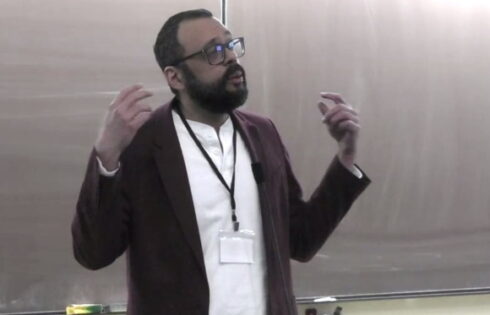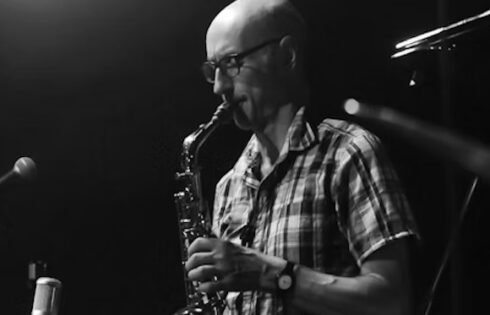
Strong contender for dumbest editorial of the year
There are legitimate concerns about state lawmakers prescribing how colleges should punish students who try to shut down campus speakers.
And then there’s this laughable drivel about the same thing by the editorial board at the University of Michigan’s official campus newspaper, The Michigan Daily.
The student editors are alarmed by state bills that would punish what they call “peaceful assembly.” Like students’ right to shut down campus speakers by making a racket until the speakers give up.
I am not making this up:
These bills would inhibit campus-wide expression [shouting down others] and punish students who are accused of infringing upon others’ right to listen to a speaker or accused of disrupting the college’s functions. In order to protect students’ civil liberties, and by extension, the social causes protesters are advocating on behalf of, the Editorial Board urges Michigan residents and students to oppose this imprudent bill. …
[I]f universities and community colleges carry out these rules, they must realize that their authority has the potential to stifle student activism. Expulsion is not a punishment to be taken lightly; students should not fear the repercussions of assembling peacefully on their campuses [shouting down speakers] — a basic constitutional right. Furthermore, the University needs to be aware of who they are giving a platform to speak [i.e., speakers invited by students and faculty] and who is hurt [i.e., feelings] as a consequence. Of course, the right to express new ideas and engage in open, intellectual dialogue is crucial to students’ academic growth, but when speakers espouse ideas that dehumanize or demean individuals on the basis of their identities, students should have the right to organize and voice their disagreement [by shrieking until the speakers give up].
Here’s a relevant section of SB 349:
A public institution of higher education may restrict expressive conduct in the public areas of its campuses only if it demonstrates that the restriction meets all of the following:
(a) Is necessary to achieve a compelling governmental interest.
(b) Is the least restrictive means of furthering that compelling governmental interest.
(c) Leaves open ample alternative opportunities to engage in the expressive conduct.
(d) Allows for spontaneous assembly and distribution of literature.
These are all provisions I have seen advocated for inclusion in campus policies by the Foundation for Individual Rights in Education (FIRE), the premier defender of campus civil liberties in America. “Least restrictive means” of achieving a “compelling governmental interest” is an extremely high bar in American jurisprudence.
The sibling bill, SB 350, puts similar obligations on community colleges, and requires them to grant students accused of disruptions far more due process than the typical college gives any student accused of any wrongdoing:
(a) the right to receive advanced written notice of all charges.
(b) the right to review the evidence in support of all charges.
(c) the right to confront witnesses against the student.
(d) the right to present a defense.
(e) the right to call witnesses.
(f) the right to have the case decided by an impartial arbiter or panel.
(g) the right of appeal.
(h) the right to active assistance of counsel if suspension for longer than 30 days or expulsion is a potential penalty.
The editorial board considers this language “vague,” and is also bothered by the bills’ “overly broad restrictions on University censorship,” suggesting these student journalists want more freedom for the administration to censor students.
It is highly doubtful these students have studied First Amendment precedents at all, because they would see some of the language they call “vague” and “troubling” in there.
Michigan Capitol Confidential opines:
The Michigan Daily has an interesting definition of the word “cancel.”
In September 2016, as reported by the Michigan Daily, some 400 U-M students and others rushed into an auditorium and shouted down a debate over the Black Lives Matter movement. Protesters “jeered and hurled obscenity-laced tirades” for an hour until the moderator at the nonpartisan event gaveled it closed. Some debate.
But according to the Michigan Daily, the actions of these 400 shouting individuals “did not infringe upon the free speech rights of [the] speakers.”
If the Daily editors want firmer ground on which to criticize the legislation, they should take a page from FIRE’s nuanced critique of similar legislation in Wisconsin, which focuses on “mandatory minimum” punishments against students who shout down speakers:
One of the things that makes civil disobedience so powerful is the individual’s willingness to accept the penalty for a cause he or she believes in. There is, therefore, nothing wrong with statutorily creating sanctions for civil disobedience. The problem, however, is that the mandatory minimum sanctions could lead to disproportionate sanctions against students whose infractions would result in mandatory, but perhaps excessive, punishment. The bill should only require institutions to create a range of sanctions for proscribed conduct.
In the meantime, you Daily editors, try reading the defining Supreme Court ruling on speech and harassment in an educational setting, Davis v. Monroe. Hope it’s not too “vague” and “troubling” for you.
Like The College Fix on Facebook / Follow us on Twitter
IMAGE: Photographee.eu/Shutterstock







Please join the conversation about our stories on Facebook, Twitter, Instagram, Reddit, MeWe, Rumble, Gab, Minds and Gettr.